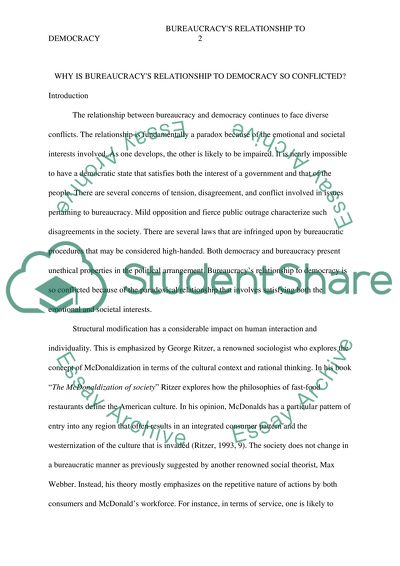Cite this document
(Why Is Bureaucracy's Relationship to Democracy So Conflicted Essay - 1, n.d.)
Why Is Bureaucracy's Relationship to Democracy So Conflicted Essay - 1. Retrieved from https://studentshare.org/politics/1635542-why-is-bureaucracys-relationship-to-democracy-so-conflicted
Why Is Bureaucracy's Relationship to Democracy So Conflicted Essay - 1. Retrieved from https://studentshare.org/politics/1635542-why-is-bureaucracys-relationship-to-democracy-so-conflicted
(Why Is Bureaucracy'S Relationship to Democracy So Conflicted Essay - 1)
Why Is Bureaucracy'S Relationship to Democracy So Conflicted Essay - 1. https://studentshare.org/politics/1635542-why-is-bureaucracys-relationship-to-democracy-so-conflicted.
Why Is Bureaucracy'S Relationship to Democracy So Conflicted Essay - 1. https://studentshare.org/politics/1635542-why-is-bureaucracys-relationship-to-democracy-so-conflicted.
“Why Is Bureaucracy'S Relationship to Democracy So Conflicted Essay - 1”, n.d. https://studentshare.org/politics/1635542-why-is-bureaucracys-relationship-to-democracy-so-conflicted.


